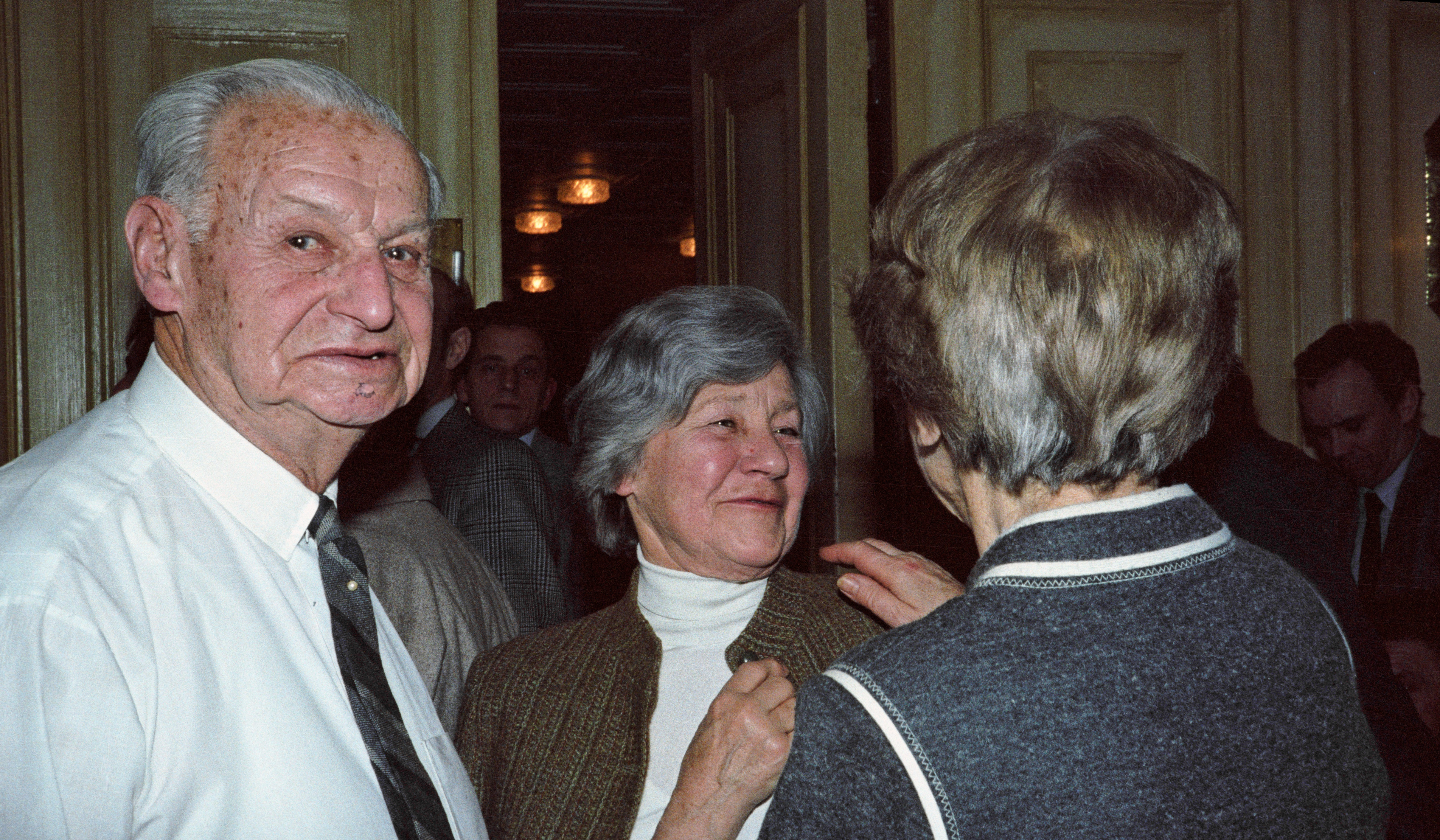|
Herbert Weichmann
Herbert Weichmann (23 February 1896 – 9 October 1983) was a German lawyer and politician ( Social Democratic Party) and First Mayor of Hamburg (1965–1971). In his position as mayor of Hamburg, he served as President of the Bundesrat (1968–1969). Life Weichmann was born in Landsberg, Upper Silesia, then part of the German Reich (now Gorzów Śląski, Poland), to a Jewish family of physicians. In 1914 he began to study medicine, but volunteered at the outbreak of the First World War in 1914. After the war Weichmann studied law at the Silesian Friedrich Wilhelm University, Breslau, and graduated (Dr. iur.) in 1922. In 1928 he married Elsbeth Greisinger and was appointed as liaison officer to Prime Minister of Prussia Otto Braun. After the takeover of power (1933) by the Nazi Party Weichmann fled first to Czechoslovakia, then to France—with a short term of imprisonment (1939–1940)—Spain, Portugal and later the United States. In 1948 he returned to Germa ... [...More Info...] [...Related Items...] OR: [Wikipedia] [Google] [Baidu] |
Government Of Hamburg
The government of Hamburg is divided into executive, legislative and judicial branches. Hamburg is a city-state and municipality, and thus its governance deals with several details of both state and local community politics. It takes place in two ranks – a citywide and state administration ( Senate of Hamburg), and a local rank for the boroughs. The head of the city-state's government is the First Mayor and President of the Senate. A ministry is called ''Behörde'' (office) and a state minister is a ''Senator'' in Hamburg. The legislature is the state parliament, called ''Hamburgische Bürgerschaft'', and the judicial branch is composed of the state supreme court and other courts. The seat of the government is Hamburg Rathaus. The President of the Hamburg Parliament is the highest official person of the Free and Hanseatic City of Hamburg.constitution of the Free and Hanseatic City of Hamburg, § 18 This is a traditional difference to the other German states. The president ... [...More Info...] [...Related Items...] OR: [Wikipedia] [Google] [Baidu] |
Bundesrat Of Germany
The German Bundesrat ( lit. Federal Council; ) is a legislative body that represents the sixteen ''Länder'' (federated states) of Germany at the federal level (German: ''Bundesebene''). The Bundesrat meets at the former Prussian House of Lords in Berlin. Its second seat is located in the former West German capital of Bonn. The Bundesrat participates in legislation, alongside the Bundestag consisting of directly elected representatives of the German people. Laws that affect state powers, and all constitutional changes, need the consent of both houses. For its somewhat similar function, the Bundesrat is sometimes (controversially) described as an upper house of parliament along the lines of the United States Senate, the Canadian Senate, and the British House of Lords. ''Bundesrat'' was the name of similar bodies in the North German Confederation (1867) and the German Empire (1871). Its predecessor in the Weimar Republic (1919–1933) was the Reichsrat. The political makeup ... [...More Info...] [...Related Items...] OR: [Wikipedia] [Google] [Baidu] |
President Of Germany
The president of Germany, officially the Federal President of the Federal Republic of Germany (german: link=no, Bundespräsident der Bundesrepublik Deutschland),The official title within Germany is ', with ' being added in international correspondence; the official English title is President of the Federal Republic of Germany is the head of state of Germany. Under the 1949 constitution (Basic Law) Germany has a parliamentary system of government in which the chancellor (similar to a prime minister or minister-president in other parliamentary democracies) is the head of government. The president has far-reaching ceremonial obligations, but also the right and duty to act politically. They can give direction to general political and societal debates and have some important "reserve powers" in case of political instability (such as those provided for by Article 81 of the Basic Law). The president also holds the prerogative to grant pardons on behalf of the federation. The Germa ... [...More Info...] [...Related Items...] OR: [Wikipedia] [Google] [Baidu] |
Soldiers' Council
A workers' council or labor council is a form of political and economic organization in which a workplace or municipality is governed by a council made up of workers or their elected delegates. The workers within each council decide on what their agenda is and what their needs are. The council communist Pannekoek describes shop-committees and sectional assemblies as the basis for workers' management of the industrial system. A variation is a soldiers' council, where soldiers direct a mutiny. Workers and soldiers have also operated councils in conjunction (like the 1918 German ''Arbeiter- und Soldatenrat''). Workers' councils may in turn elect delegates to central committees, such as the Congress of Soviets. In such a system, the workers themselves are able to exercise decision-making power. Some socialists believe that workers' councils are necessary for the organization of a proletarian revolution and the implementation of a communist society. A works council is distinct fro ... [...More Info...] [...Related Items...] OR: [Wikipedia] [Google] [Baidu] |



